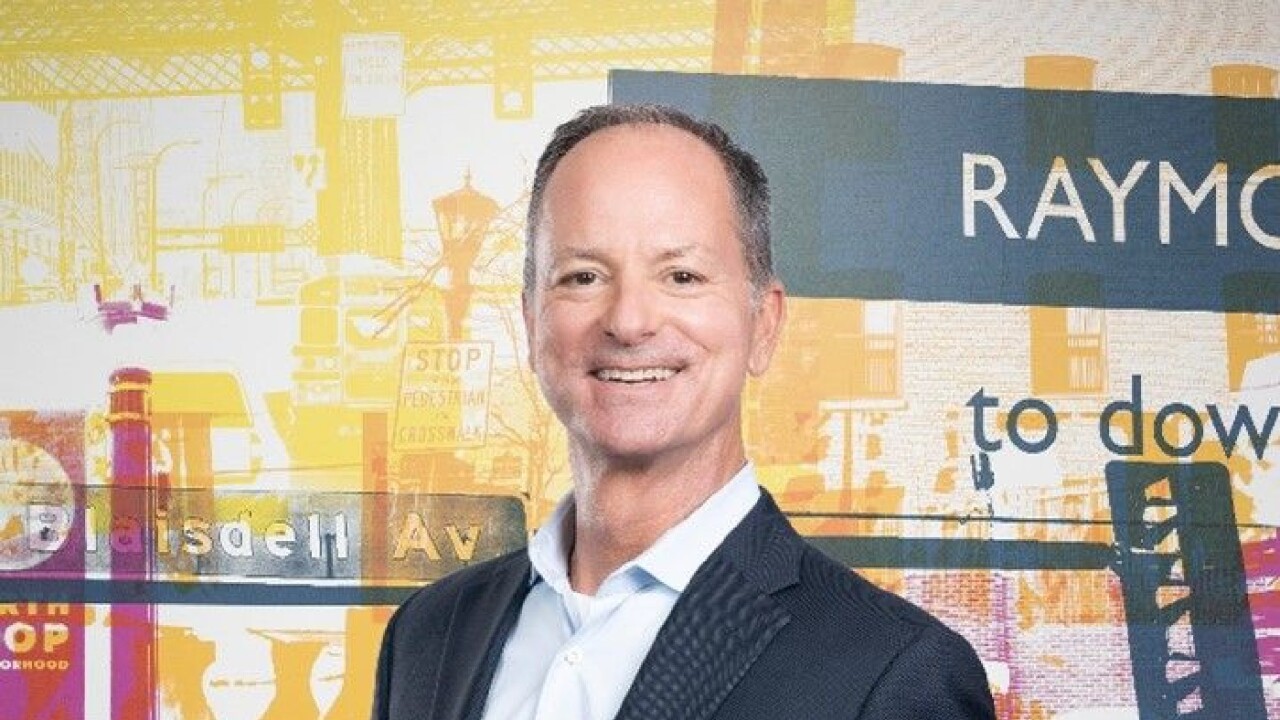- Key insights: Payment fintechs are acquiring and keeping merchants' business as banks lose market share.
- What's at stake: Value-added services and payment orchestration are helping payment fintechs get ahead of banks.
- Supporting data: About 40% of SMBs said they planned to change from a bank to a payment fintech in the next 12 months, according to Capgemini's 2026 World Payments Report.
Once upon a time, before the rise of e-commerce, banks were leaders in merchant payment services.
But that has shifted as payment fintechs such as Adyen, PayPal, Stripe and others augment traditional payment processing with value-added services like fraud prevention, analytics, financing and loyalty tools, according to Capgemini's 2026 World Payments Report.
"We're seeing a major takeover happening between the traditional players – banks – and the new age players," Elias Ghanem, global head of Capgemini Research Institute for Financial Services, told American Banker. "If banks want to be back in the game, winning back merchants will mean playing differently."
The report, titled "The (not so) silent takeover," surveyed 2,600 merchants with revenues from less than $1 million to over $100 million about their expectations from their payment providers.
Unhappy merchants
Many merchants are dissatisfied with their current banking relationships, according to Capgemini. Only 15% of small merchants, defined as companies with up to $100 million in annual revenue, said they were satisfied with their banking relationship, and less than a quarter – 22% – of medium-size merchants with revenues between $1 million and $100 million were satisfied with their bank's services. And 40% of small- and medium-size businesses said they planned to change from a bank to a payment fintech in the next 12 months.
The shift comes as many banks have deprioritized merchant acquiring amid shrinking margins in favor of card issuing and the opportunity it brings to cross-sell other products to card holders. Banks have also leaned into serving larger merchants, leaving an opening for other
Most recently, Barclays in April finalized a deal with Brookfield Asset Management that will allow the Canadian firm to acquire a majority of Barclays'
Payment fintechs have been capitalizing on that pullback by offering merchants embedded products such as business accounts, lending,
For payment fintechs such as Adyen, which works with global merchants such as eBay, Netflix and Spotify and holds banking licenses in the EU, U.K. and U.S., optimizing the payment experience for speed, cost, conversion and fraud are the central focus of their business. The company earlier this year launched Adyen Uplift, an AI-powered payment optimization platform for merchants.
"It's all about being in control of the value chain as much as we can with that license to act and that position in the ecosystem," Carlo Bruno, Adyen's vice president of product, told American Banker. "The next big wave of where we think we can add value in another puzzle piece to our overall promise is our data."
Adyen wants to use its 15-plus years of data and its regulatory licenses to offer more value-added services in fraud protection and payment orchestration to merchants.
"What does that mean in practice? For every payment that we process, there's a super high chance we've seen that shopper before," Bruno said. "There's all these decisions to make … it ultimately comes down to finding the perfect balance between conversion, fraud and cost.
"We felt all these isolated decisions that today merchants take when they process a transaction, which is risky or not; what payment methods to show? That's sequential, it's isolated," Bruno said. "I see information as symmetry across all these systems. They basically don't talk to each other. It's a loss of information and that's a waste."
Adyen also sees opportunity to use its data and AI to advance policy abuse management solutions, he said.
What banks are doing
That's not to say that banks are down and out.
Banks are disadvantaged compared to payment fintechs on the technology front, and will need to modernize their merchant servicing platforms and start offering more value-added services and real-time payments to help lure merchants back into their ecosystems, Capgemini's Ghanem said.
Yet 66% of merchants still trust their banks with financial services over payment fintechs, which points to opportunity for banks if they are still interested in merchant acquiring.
"If you decide that you want to play, you need to play the game that is being played. The only way to play is to build the right capabilities to be back in the game. Modernize your infrastructure, your onboarding and your orchestration to operate effectively," he said.
"Start getting what the merchants are looking for: the data. You have trust, you have liquidity. Now build the mix of trust, liquidity and data, and create differentiation," Ghanem said.






